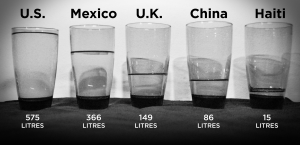Search Engine Optimization (SEO) is one of the most important aspects of any company’s digital marketing strategy.
Consistently driving traffic to your website is a surefire way to attract new customers, gain more leads, and see growth for the long haul.
However, your team cannot just upload a bunch of keyword-stuffed content to your blog and hope for the best.
You need to have a solid strategy, which includes multiple search engine optimization campaigns.
With the tips contained in this guide, you’ll be able to launch successful SEO campaigns and achieve your goals more easily.
Ready to get started? Let’s go.
- What is an SEO Campaign?
- What is SEO Campaign Management?
- What Are the Benefits of an SEO Campaign?
- How to Create a Successful SEO Campaign
- What to Expect After Launching an SEO Campaign
- The Best Tools for SEO Campaign
- Wrap Up: Creating the Best SEO Campaign is a Never-ending Process
Download this post by entering your email below
What is an SEO Campaign?
You’re probably already familiar with having an SEO strategy.
While that’s a great umbrella term that describes the various efforts you’re making with a wider scope, an SEO campaign is a little more granular.
When thinking about your SEO campaigns, consider them the pieces that all fit in harmony to create the bigger picture.
These are the smaller projects that come together to create your overall search and organic traffic strategy as a whole.
For example, you can have one large SEO strategy, but five or six different campaigns designed to reach your team’s desired goal.
What is SEO Campaign Management?
When you have multiple campaigns going at once, you can’t just leave them running on autopilot.
After all, you can’t tell if they are working if you aren’t checking and refining them every so often.
Instead, you need to be aware of where each one is at in the process and track results along the way.
SEO campaign management means consistently reviewing stats, making refinements, and launching additional campaigns along the way.
What Are the Benefits of an SEO Campaign?
The benefits of breaking down your overall strategy into smaller SEO campaigns is that it gives you more control over how you want to achieve specific goals in a shorter period of time.
For example, let’s say you want to achieve a first-page Google ranking for a specific keyword phrase.
By creating a campaign specifically around this goal, you can publish content that relates to this topic.
Without a true SEO campaign tied to a certain keyword, it would be much harder to track whether you’re able to achieve this goal, nor would you be able to plan all the necessary steps to make it happen.
How to Create a Successful SEO Campaign
Now that you know what an SEO campaign is, let’s look at what it takes to launch one.
While many people think you just publish content and call it good, there are a few more steps involved.
By working through the entire process, you can create a more comprehensive overview of the health of your website and set objectives that align with where you want to go.
Simply put, you want to have a plan for the various elements to create a solid campaign.
Here is how you can make that happen.
Look at where your website is currently at
Before you can move forward, you need to know where you’re currently at.
Reviewing pages and seeing where they’re ranking now can be a good indicator of the changes you need to make with your new SEO campaign.
This can also help you see where your previous SEO efforts have done well or even failed, which can make it easier to plan for your newest campaign.
Since this information will be the baseline for future results, be sure to take good notes and include as many details as possible.
Include elements like:
- Page speed.
- Backlink health.
- Current ranking status.
Set a clear goal for your SEO efforts
Next, you should set a clear goal for what you want your SEO campaign to achieve.
Is it a better ranking for a specific term? Higher levels of organic traffic? Better CTRs?
Maybe it is even something like a certain page view count on a specific landing page or a greater length of time on page.
There are literally dozens and dozens of ideas you could choose here, so select one or two that best match your bigger digital marketing strategy needs.
Notate this goal, as it will be what you’ll monitor for in the future.
Keyword research and competition analysis
During this portion of creating your SEO campaign, you’ll want to dive in and do your research.
This means finding the right keywords to accomplish your goal and seeing how your competition is currently ranking.
If you find that the current top search results for a particular keyword are saturated with major corporations or big business websites, then you might want to skip it in lieu of something else.
Likewise, keywords that bring up social media sites or even Pinterest pins are generally pretty easy to see a high ranking in a short period of time.
This is one of the most crucial aspects of creating the best SEO campaign for your business, which means it is important to spend a bit of time on it.
Create awesome content and improve internal linking
In most cases, this means writing a few blog posts or evergreen articles for your website and posting them.
But it can also include editing current content to include the right search terms or updating ones to include a more informative copy.
Once this is complete, you’ll need to improve your internal linking.
Make sure you’re creating links to relevant topics to other pages already on your website within the new posts.
But also remember to go back to older content and include internal links to the new posts, as well.
Check your technical optimization
Another important part of creating a winning SEO campaign for your brand is to check your technical optimization, too.
Make sure all of your meta descriptions and title tags match your desired keyword accordingly.
And double-check things like page speed, broken links, and other little issues that can make it harder to show up high in the SERP.
If it makes sense to use structured data with your content, ensure it is installed and working well, too.
Track your results
Finally, you’ll want to track the results of your efforts by using a tool like Google Analytics or Google Search Console.
Make sure you leave enough time before making any major changes, but keep tabs on where everything stands as far as rankings and traffic at least once a month.
After six months or so, you should be able to tell whether the SEO campaign was a success.
However, if there’s been a major algorithm change in that time period, you might want to wait a little bit longer before making a final determination.
What to Expect After Launching an SEO Campaign
So, let’s say you’ve followed the exact steps we’ve outlined above.
What should you expect in terms of time frame when it comes to seeing results?
While we wish SEO was something that worked overnight, the truth is that it is an incredibly slow process.
In fact, you can do everything perfectly right and not see an improvement in organic traffic for weeks, months, or even a year.
That said, we want to help those new to digital marketing keep a realistic timeline for their efforts, especially if this is a first or second SEO campaign.
During launch
This is the phase where you’re putting in all of that hard work.
Your marketing team is busy doing keyword research, writing content, and building out pages or post sections for it to go.
It is also when the initial content is published.
First few days after launch
This is the refinement phase.
You might have a few team members go over the content to spot any typos or issues.
And you’ll likely go ahead and resubmit your sitemap to Google and Bing to start the process of ranking for specific keywords going a bit faster.
Of course, you’ll only want to do this last part when you’re absolutely sure you won’t be making any more changes within the coming days.
One month after launch
A month after you’ve launched your content, your team should start working on a link building outreach program.
This is where you work to get your specific SEO campaign focus page linked on someone else’s website.
However, you want to ensure the website that is linking to you isn’t SPAM, which is why things like guest blogging work well.
Two months after launch
After a couple of months, you should take time to analyze the overall market for the type of content you’re publishing.
For example, if your niche is seasonal, then there might not be as much traffic as a whole going to any website within that category.
You should also look to see if any of these trends are affecting your pages or if you’re still seeing a positive trend towards reaching your goals.
Six to ten months after launch
This is when you get to decide whether your SEO campaign was fruitful or not.
Look at the various analytics results to see if there was an improvement or if you need to make adjustments.
Some issues might be technical, like page speed, but others might just include more competition in the same niche.
From here, you can either continue to make and track adjustments or even abandon the campaign altogether.
The Best Tools for SEO Campaign
Of course, trying to get the right information about the success of your SEO campaign comes down to using the right tools for your needs.
While there are boatloads of different options on the market, some are just better for digital marketing than others.
We’ve gathered up a few of our favorites to share with you based on industry recommendations and available features.
Here are the best tools for a successful SEO campaign.
Moz Pro
There’s a reason why Moz Pro is considered one of the best SEO tools in the industry.
Not only does it offer very comprehensive reporting, but it can also help you analyze your website and determine the best keyword phrases you’re most likely to rank for.
When it comes to creating top-performing SEO campaigns, this information is crucial to the decisions that you’ll make along the way.
While Moz Pro is somewhat pricey, it is one of these apps you won’t want to skip out on.
Copyscape
One of the biggest faux pas when it comes to search optimization is duplicate content.
While there are a ton of different ways to say the same thing, Google tends to frown upon copy that directly repeats something that’s already published online.
Copyscape works to keep this from happening by searching the internet for you.
All you do is paste in the information from a blog post or article you’ve written into the program and it will tell you if there’s something like it already on the web.
Best of all, it is a good way to keep your outside copywriting team honest.
If you receive a draft that has a ton of Copyscape matches, you aren’t getting the unique written content you’re paying for.
Crazy Egg
Have you ever wondered just what website visitors are doing when they land on your page?
Crazy Egg is an SEO tool that makes it easy to see where people are paying attention when they visit through the use of heat maps.
This can give you a ton of information as to certain areas where they’re losing attention or if you need to make adjustments to the overall layout of the website, change navigation, or more.
The best part about this is it gives you a technical refinement option to keep traffic on the page longer, which can have a direct correlation to your overall search engine ranking positions.
Page-Speed Insights Tools
Google has made it well known that page speed and mobile experience are two huge factors when it comes to ranking.
Simply put, if your website takes forever to load, visitors aren’t going to be patient enough to see what you have to offer.
They’ll just click on the next link and move on to someone else.
Page-Speed Insights gives you a quick idea of how much time your website takes to load when someone visits for the first time.
It also offers data on the type of browser it is loading slow for and which ones are doing okay.
If you use this tool and see there is a potential problem, you can check your on-page efforts to see if maybe some images are too large or there are areas where your tech team can make adjustments to the page.
But the issue might not even be your site — it could be your host, too.
This makes this tool even more important when it comes to identifying and troubleshooting a slow page load time.

Google Keyword Planner
There are a ton of excellent keyword research tools out there.
Even Moz offers a great way to check for the right words and phrases for the topic you’re planning on covering as part of your SEO campaign.
However, sometimes it is best to just go back to basics. And that’s why Google Keyword Planner is on this list.
Not only is it pretty accurate in terms of monthly search data, but it can also give you a few additional ideas on other terms to target as part of the same content.
In the end, that’s a great way to really enhance your overall SEO campaign.
Google Analytics
We can’t cover a guide about creating the best SEO campaigns for your business without at least mentioning the use of Google Analytics.
Not only is it free, but it is like getting the most important information right from the source when it comes to tracking your keyword campaigns.
While almost everyone uses Google Analytics in some fashion, not everyone uses it correctly.
That’s why we suggest brushing up on the available features it offers and deciding which ones you want to track throughout the course of your SEO campaign.
You can even opt to create unique dashboards that pertain just to the SEO goals you’re hoping to achieve.
This can be a simple way to check stats at a glance in the months that follow, giving you a good understanding along the way if your efforts are truly working.
Wrap Up: Creating the Best SEO Campaign is a Never-ending Process
And this is not a bad thing. Once you’ve completed one project, it is time to start another one.
By having multiple campaigns going at one time, you can create a bigger and more effective overall SEO strategy.
Would you like to learn more about the current maturity of your SEO strategy?
Our Rock Content team has put together this excellent SEO assessment tool that you won’t want to miss.

![[WA] Ultimate Content Marketing Kit](https://rockcontent.com/wp-content/uploads/2022/08/Content-Marketing-Kit-750x200px.jpg)









